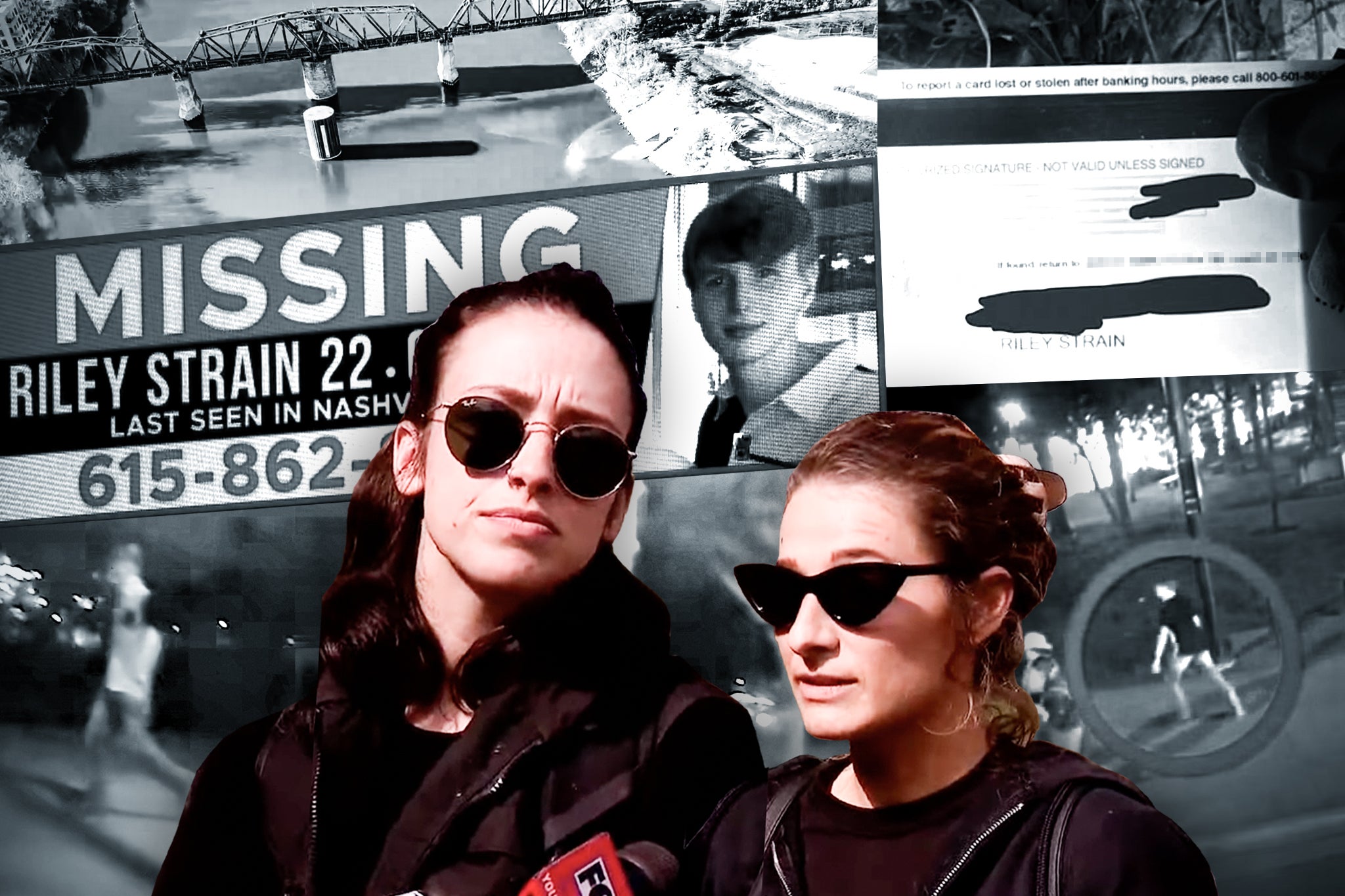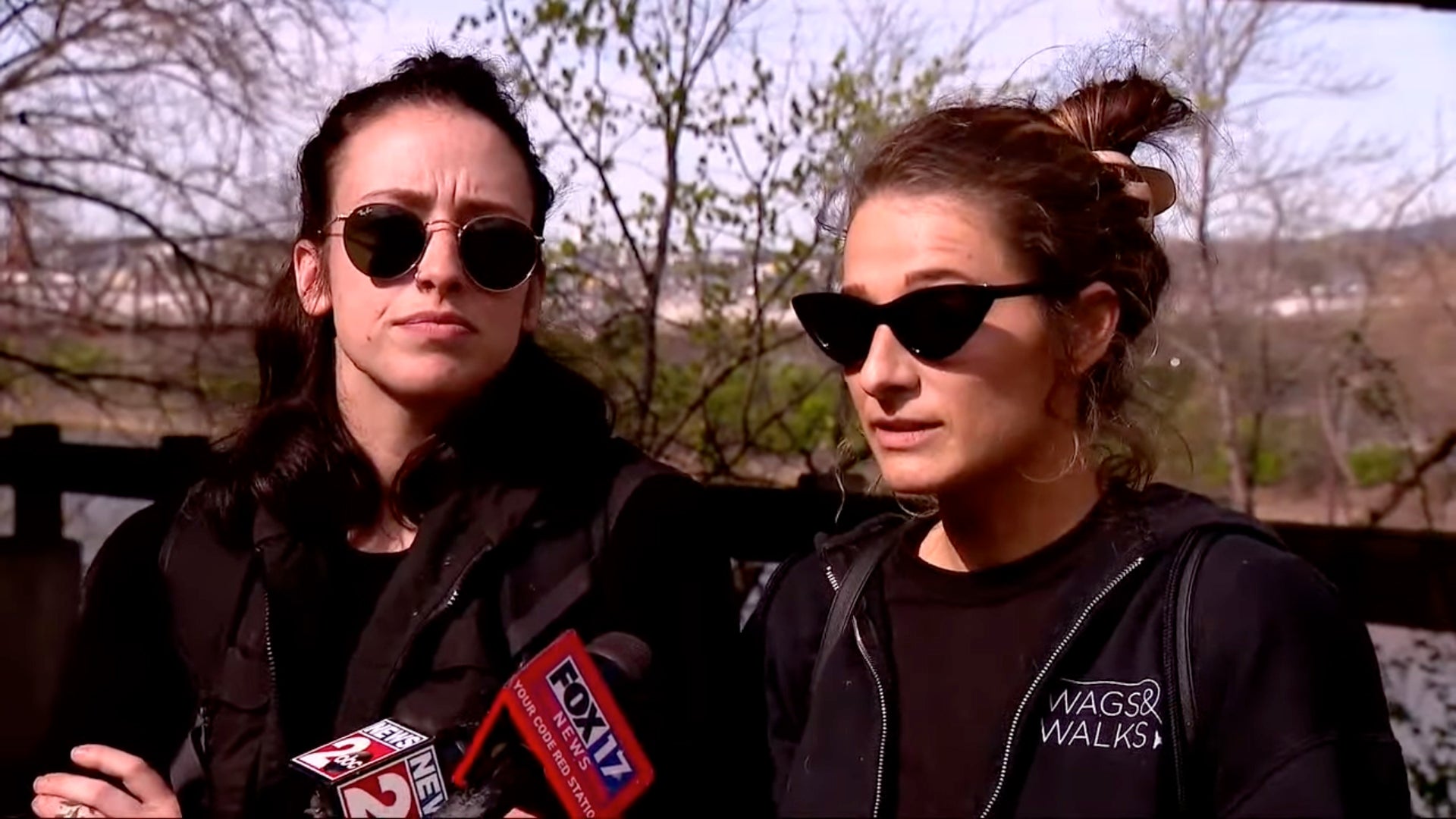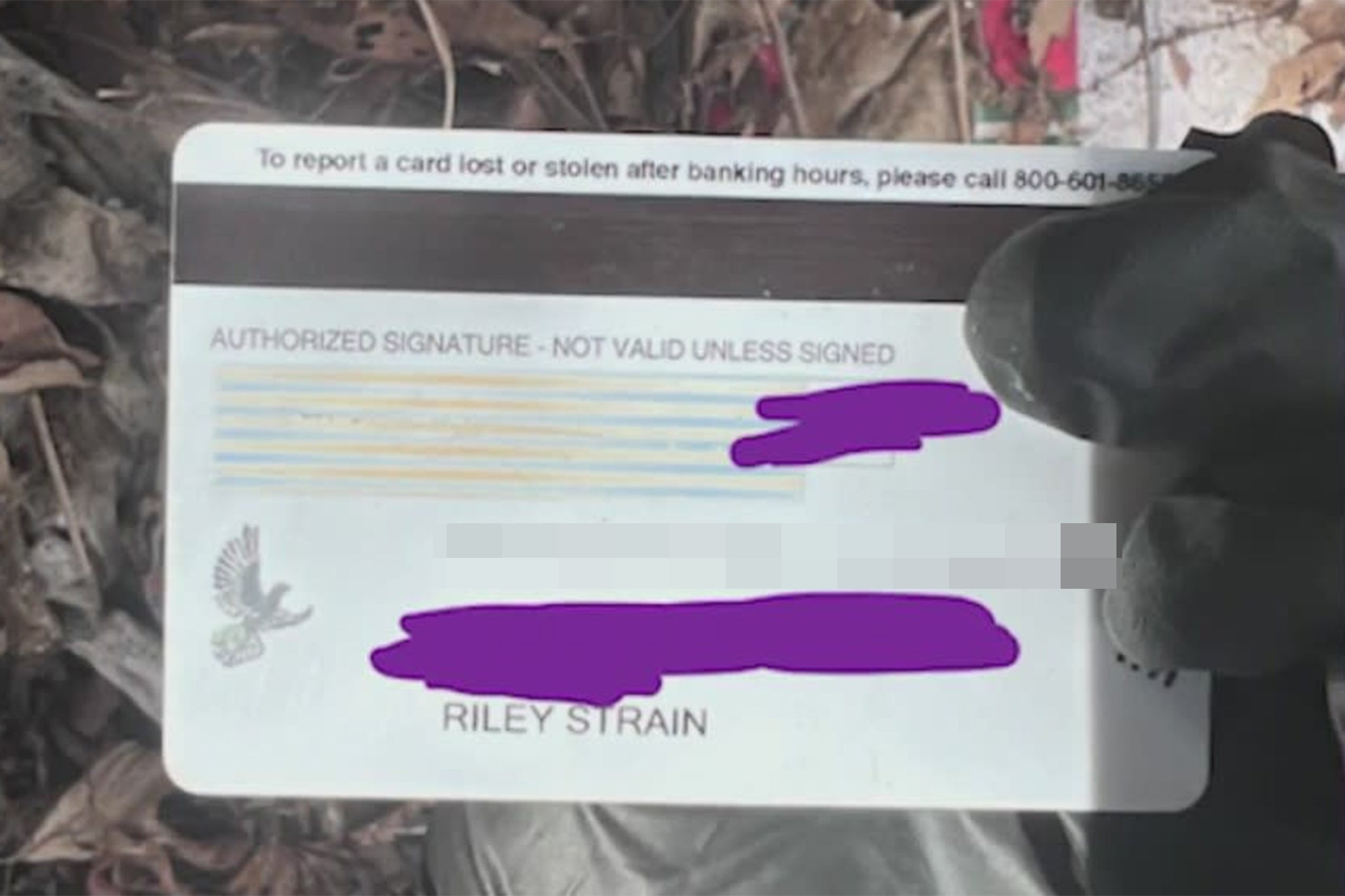The tragic case of Riley Strain and the TikTok sleuths who tried to find him
Riley Strain’s body was found after an agonizing search that included both traditional law enforcement and self-styled social media sleuths. Family and friends of Strain largely welcomed their efforts — but do online detectives help or hinder such efforts? Andrea Cavallier reports

At one point, a debit card on a river embankment was the only major clue in the disappearance of University of Missouri student Riley Strain – and it was discovered by two TikTokkers.
Two Nashville women, Brandy Baenen and Anna Clendening, were livestreaming their search efforts for their followers on the social media platform when they stumbled across the card near the Cumberland River in Tennessee.
Twenty-two-year-old Riley Strain, who was in Nashville with his college fraternity brothers, went missing on March 8 after being kicked out of a bar called Luke’s 32 Bridge. Authorities in Nashville scoured the surrounding area, including the river, for days but found nothing.
On March 22, his body was recovered from the Cumberland River in West Nashville, around eight miles from the downtown area, the Metropolitan Nashville Police Department confirmed.
Police said that there was no signs of foul play, though an autopsy is pending.
His case has received national coverage and captured the attention of the online true crime community, with TikTokkers churning out videos that detail Riley’s alleged last moments before he disappeared. Facebook groups emerged with people engaging daily in lengthy discussions as they dissected multiple theories.

Sometimes referred to as “armchair sleuths”, such everyday individuals have taken to using their online skills to try to solve everything from timely missing person cases to decades-old cold case mysteries.
The idea of armchair sleuthing isn’t anything new, but has become more popular in recent years – especially on TikTok. But is it helpful or harmful?
Florida mom Whitney Sich, who created True Crime Sisters, a network of Facebook groups dedicated to missing persons and other notable cases, says it’s a fine line.
“While online communities can provide valuable insights, support and awareness, there can be a fine line between aiding and potentially hindering an investigation,” she told The Independent.
Sich, who also runs A Voice for the Voiceless, a nonprofit dedicated to raising awareness of missing persons cases, created a separate Facebook group dedicated to Riley’s case when he went missing. But crucially, she asked his family for their consent to do so.
“I communicate with Riley’s loved ones daily. Our organization believes in the importance of engaging with empathy, family support and cooperation with law enforcement,” Sich told The Independent while the search was still ongoing. “Administrating a group around the clock has been a challenge as the awareness for Riley expanded rapidly, but loved ones realize that everyone shares the common mission and hope of finding Riley.”
As news began to circulate of a body being found in the Cumberland River on Friday morning, Sich urged her Facebook group members to be cautious and respectful about what they posted until there was confirmation.
After the body was confirmed to be Strain, the family – even in the midst of the tragic news – expressed gratitude to Sich and her group for all the work they had done.
The tragic discovery came after Strain’s stepfather Chris Whiteid and family friend Chris Dingman told NewsNation that police had shown the family new footage of what was believed to be his last known movements. In the video, Strain was seen jogging close to the river – and away from the direction of his hotel, the family said.
Throughout their two-week ordeal, Strain’s family was often frustrated with the Metro Police search effort for their son, but praised the online community for their efforts.
After the Tiktokkers found Strain’s bank card, Dingman called the discovery a “great lead” from a “TikTok dynamic duo that we are sincerely appreciative of.”
“And we’re appreciative of everybody that’s been out there searching and trying to bring Riley home,” he said at the time. “They did find this credit card. It was in a location extremely close to where the last ping of his phone was from. It is verified.”
Dingman said the TikTokers “immediately took the broadcast down and reached out” after their discovery – which he said was appropriate and appreciated by the family.
“It’s ironic that they are trying to ban TikTok now and they’re literally the only ones who have provided us a solid lead,” he said in a recent interview with NewsNation.
One of the women who found the card, Brandy Baenen, has been following the case since the beginning, when she connected with another online sleuth who was equally passionate about finding Riley. They volunteered to help search for Strain together.

“Her and I together were brave enough to be able to go all the way down that embankment,” she explained to NewsNation. “And now we feel like we’re professionals at it. We were very excited to find the card, but now we just feel like we have so many more questions.”
“My stomach dropped,” Clendening says, recalling what she felt as she turned over the card to reveal Riley’s name. “My innate reaction was to be like, ‘Let’s keep looking.’”
“Riley’s face — I’m seeing it every time I close my eyes,” Baenen adds. “I haven’t been able to sleep the last few days because I know his mom is not sleeping.”
After police confirmed on Friday that Strain’s body had been found, Baenen posted a video on TikTok addressing the tragic news after receiving a slew of requests for updates.
“I’m sure you guys all know the update,” she says in the video, her voice breaking. “So this is what I’m going to say. When I was able to talk to Riley’s mom, she said that he loved to play baseball and that he always had a big smile on his face and that he was super silly and goofy and just really wanted to brighten everyone’s day.”
With tears in her eyes and a photo of Riley behind her, she continued: “She said he was extremely well-mannered and she giggled, because she’s like ‘mama wouldn’t have it any other way.’”
“Those are the words I’m going to hang on to and remember Riley as and I hope you those words can help you too,” she added.

The family had called in the United Cajun Navy for assistance earlier this week, which is described by its director as a disaster response organization made up of volunteers.
David Flagg, the organization’s national director of operations, said the group had planned to deploy an airboat and a hovercraft along the Cumberland River bank, where Riley’s phone last pinged off a cell phone tower and his bank card was found.
On Thursday, Sich rallied the members of her Facebook group to help find fuel for the airboats. And that same day, Baenen posted a video on TikTok announcing that she had been given a job helping with dogs during the search efforts.
Sich tells The Independent she’s found that when it comes to law enforcement receptiveness on cases closely followed by the public and true crime groups, “it varies case by case, but collaboration between online communities and authorities can yield positive results.”
“While these groups can generate discussion and awareness, it’s crucial to ensure that information shared is accurate and doesn’t impede official investigations,” she added. “We are fielding hundreds of posts per hour and sharing with family and law enforcement first.”

When Gabby Petito vanished in August 2021 while on a road trip with her boyfriend, Brian Laundrie, social media was similarly taken over by amateur sleuths. Petito already had a sizeable following after documenting her travels with the #VanLife hashtag on Instagram and TikTok, but interest in her story spiked when Laundrie returned home – and she did not.
TikTok was flooded with videos from amateur detectives as they combed through previous content and dissected her route to figure out where she could be. While some users provided content with a genuine attempt to help the case, many users were accused of exploiting interest in the case to gain more likes and followers.
And indeed, before TikTok even existed, a subreddit called “FindBostonBombers” went viral during the hunt for the suspects in the 2013 Boston Marathon bombing. People used the Reddit board to share theories and photos of potential suspects, which initially resulted in innocent people being wrongly named.
A glimpse into the world of armchair detectives also appeared in the 2019 Netflix documentary Don’t F**k With Cats. Deanna Thompson and John Green used Facebook, Reddit, Google Maps, Google Image searches to identify the name and whereabouts of killer Luka Magnotta.
